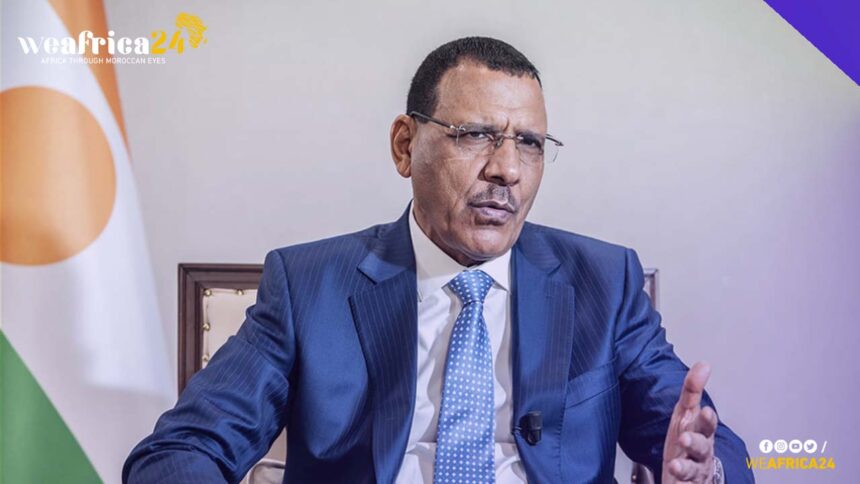In an interview with the newspaper Jeune Afrique, published on 26 May, the President of the Republic of Niger, Mohamed Bazoum, discussed several aspects of his governance, including the fight against insecurity in the Sahel, Niger’s economic model and the strengthening of the capacities of Niger’s Defence and Security Forces (FDS).
The President raised the issue of the strength of the Defence and Security Forces, which has quadrupled between 2011 and today, rising from 10,000 to 40,000 soldiers, from 3,000 to 15,000 gendarmes, from 4,000 to 16,000 police officers and from 4,000 to 17,000 national guardsmen, pointing out that the difference today is that each soldier is equipped with a modern weapon.
Mr Bazoum pointed out that his country has drones, helicopters and fighter planes, and that the special forces are trained with the help of partners. However, he pointed out that the jihadists still lack a better knowledge of the terrain, and are still one step ahead.
President Bazoum also singled out the Islamic State organisation as enemy number 1, given that it operates in the so-called “3-border” zone shared by Niger, Mali and Burkina Faso. Causing insecurity in the Sahel.
In his fight against terrorists, Niger’s 10th Head of State does not rule out the option of dialogue, a trademark that he also defended in his interview with the Jeune Afrique journalist.
Regarding uranium production, Mr Bazoum said that it was of real importance when Niger’s economy was in its infancy, adding that the quantities sold now, which amount to 2,300 tonnes of uranate per year, are still insufficient, and the impact of uranium on the economy will not be significant, even assuming that the Imouraren deposit goes into production in 2028.
Furthermore, the Head of State of Niger is counting on the production of black gold to boost the economy. To this end, a pipeline linking the Agadem oilfield in Niger to the port of Cotonou is currently under construction. “It is practically complete”, he said, adding that “at 2,000 km, it will be the longest in Africa”, and that “production and export of oil from Agadem should start in October this year, with 100,000 barrels per day as a start.







